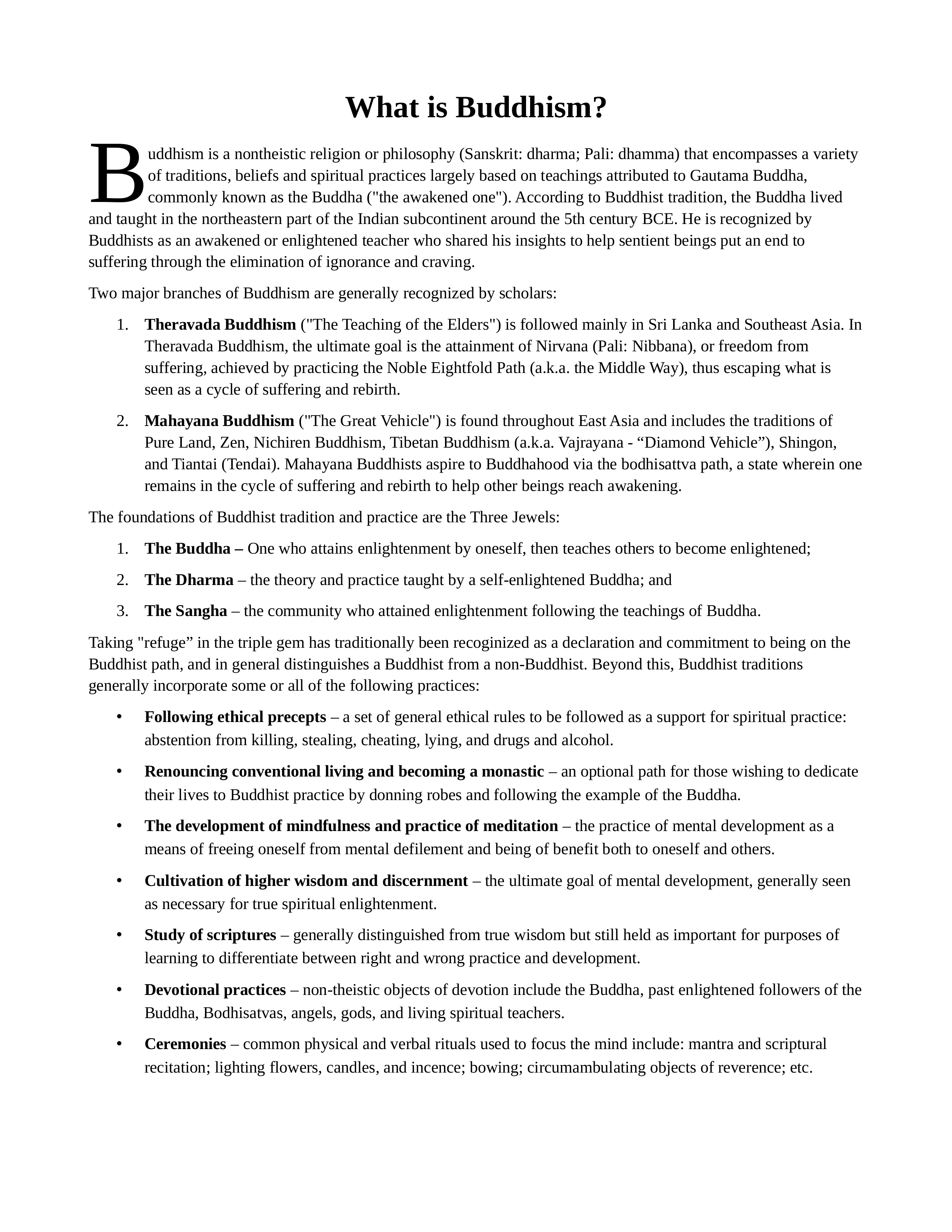Here's a little different approach, bhante. Young university students might get more attracted to a rebellious and in your face style of presentation. :)
What is Buddhism?
Buddhism is the doctrine of the Buddha. It is commonly referred to as the Dhamma.
The Dhamma is like the great ocean. The great ocean tastes the same(salty) wherever you dip your mouth in it. Similarly, the Dhamma tastes the same regardless of which part you start to learn it from. What is that taste? It is the taste of liberation(vimutti).
What does Buddhism offer you?
You have been searching for satisfaction since the day you were born, have you not? If you are already satisfied, you wouldn't be coming to this university to study. You wouldn't be spending sleepless nights, just to pass exams.You wouldn't be looking for various methods to make yourself happy on a daily basis. You spend most of your time on any given day in search of satisfaction, yet you can't see an end in sight. You still have to keep doing things to keep yourself happy. It doesn't stop even if you get a doctorate. Even the richest man in the world has to keep doing things everyday to make himself happy. Ever stopped to think why that is, instead of trying the same methods over and over again? Ever wondered if there is a better way? Well, there is! Thanks to a young prince named Siddhartha who lived in India over 2500 years ago. He thought differently from the rest. He saw the dissatisfaction in the world and the things people do to mitigate it. He realised that whatever they do doesn't seem to give a permanent solution to suffering. He refused to submit to this like the rest of the world. He didn't want to keep doing the same things people have been doing which have failed since time immemorial. He left his palace in search of a happiness that does not fade.
There are 2 way to search for happiness in life.
The ignoble search and the noble search.
What is ignoble search? There is the case where a person, being subject himself to birth, seeks [happiness in] what is likewise subject to birth.
There is the case where a person, being subject himself to aging, seeks [happiness in] what is likewise subject to aging.
There is the case where a person, being subject himself to illness, seeks [happiness in] what is likewise subject to illness.
There is the case where a person, being subject himself to death, seeks [happiness in] what is likewise subject to death etc.
And what is the noble search? There is the case where a person, himself being subject to birth, seeing the drawbacks of birth, seeks the unborn, unexcelled rest from the yoke: Unbinding. Himself being subject to aging... illness... death... sorrow... defilement, seeing the drawbacks of aging... illness... death... sorrow... defilement, seeks the aging-less, illness-less, deathless, sorrow-less, undefiled, unexcelled rest from the yoke: Unbinding. This is the noble search. It is the search that led prince Siddhartha to become the Buddha
What is the advantage of learning Buddhism over other religions or over science for that matter?
You don't have to wait till you die to realise the final goal. There's a clear path defined which you can practice and reach the destination while you are still alive. So there's no risk involved. There's no waiting in hope. The Buddha achieved this at the age of 35. What he realised is through direct knowledge. It's not a hypothesis created in the mind to explain certain behavior that might change in the future. It neither requires faith or verification by others. Once you achieve the goal, you will be satisfied and the search ends for good. For thousands of years, many who have followed the same path have achieved the same satisfaction that never fades. You can too!
